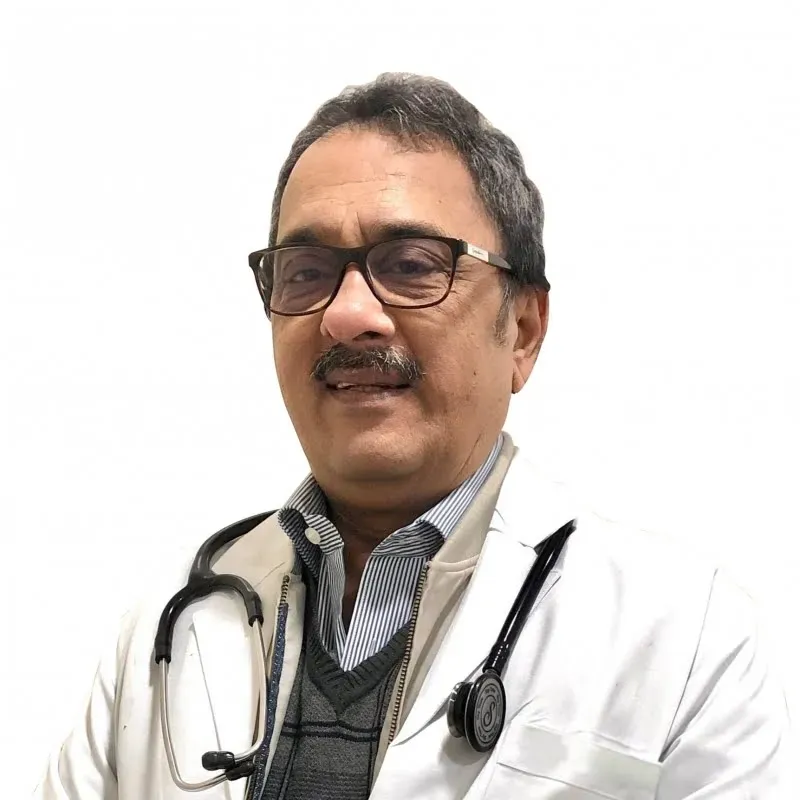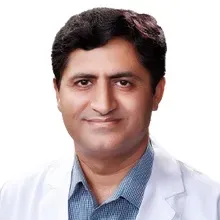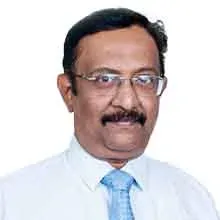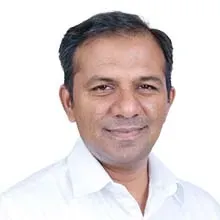Overview of Nasal Polyps Treatment India
Nasal polyps are soft and noncancerous growths of the tissues on the lining of nasal sinuses and passages. These growths hang down like grapes or teardrops and form in groups. They form from mucous membranes, chronic inflammation, and are linked with asthma, allergies, infection, immune disorders, or drug sensitivity. They are not painful but can get irritated and swollen. Surgery or medications can treat it. Small nasal polyps do not cause symptoms, but groups or large growths block the nasal sinuses and passages leading to breathing problems. It can affect people of all ages but is commonly found in adults in their 30s or 40s. It can grow in one or both nostrils at the same time and can grow in clusters. Polyps are more common in men as compared to women. Generally, polyps do not present any symptoms.
Types of Nasal Polyps Treatment India
Nasal Polyps Types
Polyps in the nose are classified into two categories - antrochoanal polyps and ethmoidal polyps. The latter one is the most common and is developed from the ethmoidal sinuses. Antrochoanal polyps are less common and develop in maxillary sinuses. These sinuses are located above the teeth.
Nasal Polyp Treatments
The goal of treatment is to reduce the size of polyps or get rid of them. Medicines are the first approach. Surgery is an exit procedure only if other treatments fail to work.
Medications
Medicines help to reduce inflammation and reduce the size of the polyp. There are several medicines that can make even large polyps eliminate or shrink. The medication treatment may include:
01. Nasal corticosteroids - The doctor may prescribe a corticosteroid nasal spray to reduce irritation, runny nose, and blockage sensation.
02. Oral and injectable steroid - If nasal steroid fails to eliminate the symptoms, the doctor may prescribe this medication. These medicines can cause serious side effects, so the doctor will recommend short-time usage of the spray. Injectable steroids are used when nasal polyps are severe. The doctor may give you a medicated injection called dupilumab to treat the condition. If the patient has large polyps, the doctor may prescribe steroid tablets. These tablets are effective in treating the symptoms but have few side effects, such as weight gain.
Surgery
Polypectomy is the most common procedure when drug treatment fails to shrink the polyps in the nose. It is done under general or local anesthesia and is an outpatient procedure. Make sure you have arranged for someone to drive you home post-surgery.
A thin and long tube with a tiny camera is inserted into nostrils that guide the doctor to the sinus cavities. The surgeon will cut out the polyps using a magnifying lens and surgical instruments. The surgeon may remove small pieces of nose bone to open the nasal passage. After surgery doctors will recommend using saline water to rinse the nasal passages to promote healing and avoid sinus infections. The surgery can lead to nose bleeding. It can also lead to infection.
There may be slight bleeding from the nose for the first few weeks post-surgery. The doctor may place a steroid-eluting stent in the nose to prevent inflammation and growth of polyps. These stents will be removed in follow-up visits. You need to take a week off from work.
Diagnosis of Nasal Polyps Treatment India
Symptoms of Nasal Polyps
Small polyps in the nose may not cause any symptoms, but as they grow they can lead to:
01. Loss of taste or smell
02. Stuffy nose
03. Runny nose
04. Headaches
05. Bleeding from nose
06. Pain in the sinuses
07. Snoring
08. Postnasal drip
The big polyps can block the sinuses and lead to:
01. Recurrent sinus infections
02. Repeated asthma attacks, especially in asthma patients
03. Trouble in breathing through the nose
04. Trouble in sleeping
Nasal Polyps Diagnosis
The doctor will make a diagnosis based on your answers and symptoms. The diagnosis tests include:
01. Nasal Endoscopy - A narrow tube with a tiny camera is inserted into the patients nose to get a detailed examination.
02. Imaging Studies - CT scan can help to provide the exact size and location of polyps.
03. Allergy Tests - Skin tests are done to examine the severity of allergies.
04. Test for Cystic Fibrosis - If a child is diagnosed with nasal polyps, the doctor can suggest this test. It is an inherited condition that affects the glands.
05. Blood Test - It is recommended to test levels of vitamin D
Symptoms and Risk factors
Nasal Polyp Causes
Polyps in the nose occur due to changes in mucous membrane lining of the nose or sinuses. The mucous is a wet layer that protects the nose from the inside and humidifies the air we breathe. During an infection, the mucous becomes red and swollen and produces enough fluid that drops out. The prolonged irritation can form nasal polyps. Some people can get polyps with no prior nasal problems, but there is a trigger behind this. This trigger can be any one or more of these, including asthma, chronic sinus infections, hay fever, cystic fibrosis, Churg –Strauss syndrome, and sensitivity to drugs.
Prevention
One can reduce the chances of getting nasal polyps in several ways. Some of these ways are listed below:
01. Manage Asthma and Allergies - Follow doctors instructions to manage allergies. If symptoms are not improving, consult your doctor.
02. Maintain Good Hygiene - Wash your hands regularly to reduce the risk of bacterial or viral infection.
03. Avoid Nasal Irritants - Avoid breathing irritants, such as chemicals, allergens, airborne pollutants, tobacco smoke, dust, and debris. All these irritants trigger irritation and swelling in the nose and sinuses.
04. Humidity - If the air in the home is dry, opt for a humidifier which can help to moisten breathing passages and prevent inflammation. Clean the humidifier daily to avoid bacterial growth.
05. Nasal Rinse - Rinse the nasal passages with saline spray. This will improve mucus flow and remove irritants from the nose. The saline sprays and nasal wash kits can be purchased from the medical store. It is recommended to use distilled water, sterile and boiled for one minute and cooled. The irrigation device must be distilled and sterile, leaving it open to dry.
Complications due to Nasal Polyps
A large or cluster of polyps can block the passage of air and drainage of fluids from the nasal cavity. The possible complications that can arise are:
01. Chronic sinus infections.
02. Obstructive sleep apnea.
03. The face structure can be changed. This can lead to double vision.
Top Doctors for Nasal Polyps in India
Empower your Health with the Expertise of Leading Medical Professionals.
Treatment Costs for Nasal Polyps
Be the change and be an opportunist in transforming healthcare.
How it's Works
Guiding your Journey from Discovery to Treatment Planning and Beyond.
Discovery
Get a consultation to discover about your treatment
Pre-Treatment
Admission to the best hospital and all pre-treatment facilities
Post Treatment
Get post-treatment follow-up care with medicine fulfillment
Treatment Planning
Hassle-free treatment planning with package & cost estimations
in-treatment
world-class quality procedures and equipment for treatment





















